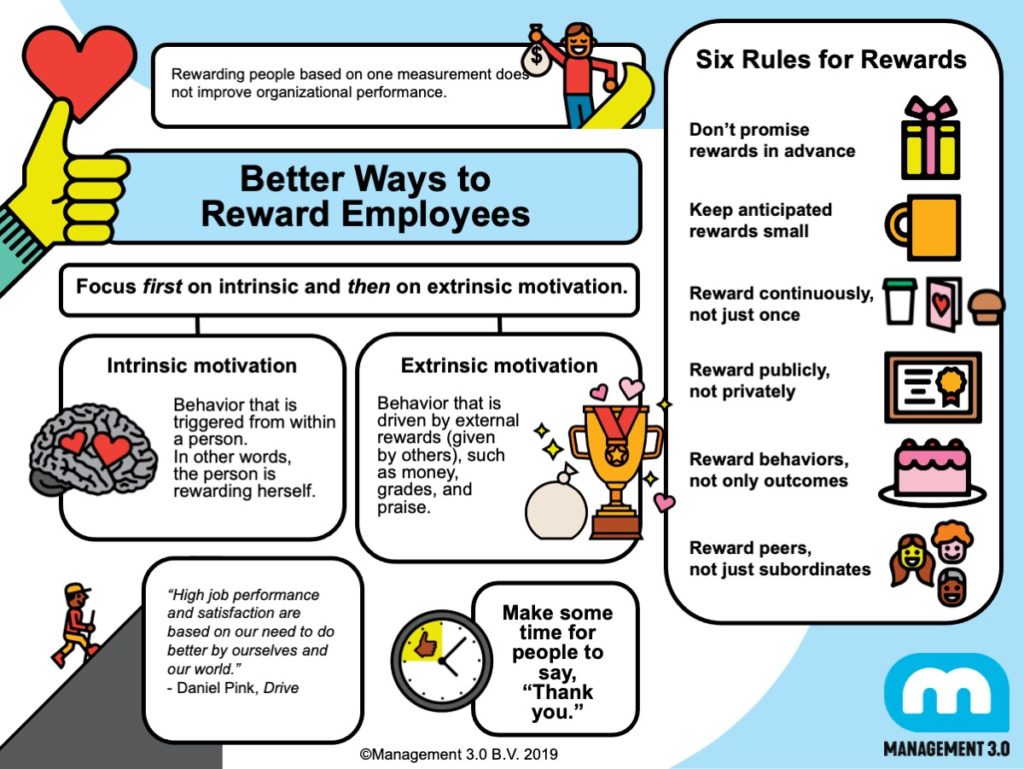How can we incentivize performance? How can we reward people for work they’ve done? More importantly how do we increase intrinsic motivation, instead of the more unreliable extrinsic motivation that rapidly fades away. The Rewards & Incentives module is focused on understanding the difference between intrinsic and extrinsic motivation and it looks at how we can exploit the former. The module teaches us how to relate people’s work and roles to purpose, mastery and freedom.
What will you learn?
- Understand the connection between the performance and value created by employees and reward systems.
- The difference between intrinsic and extrinsic motivation and where to focus in a Management 3.0 context.
- How does work performed by people relate to purpose, mastery and freedom.
- The risk of promising rewards in advance, the risk is of large rewards in an organization.
- Why rewarding continuously is more powerful as just once a year.
- How rewards can help you to grow a culture and desired behavior in an organization.
- Why rewards should be about behavior and not only outcomes.
- The strength of reward systems influenced by peers.
- The advantage of Kudo Cards and Kudo Walls, and the possible risks.
- The power of saying thank you.
Rewarding people based on one measurement does not improve organizational performance.
What will we discuss in this module?
- It is wrong to reward people and why could it be wrong or good?
- What would be the best bonus system in an organization?
- How much should managers and leaders be involved in deciding on rewards and incentives, and why?

The Rewards & Incentives module is part of the following workshops
Rules for Rewards
Don’t promise rewards in advance
Give rewards at unexpected times so that people don’t change their intentions and focus on the reward.
Keep anticipated rewards small
You cannot always prevent people from anticipating rewards. But this may be harmless when the rewards are small.
Reward continuously, not just once
Every day can be a day to celebrate something. Every day is an opportunity for a reward.
Reward publicly, not privately
Everyone should know what work is appreciated and why. A regular public reminder works better than a private one.
Reward behaviors, not only outcomes
Outcomes can often be achieved through shortcuts while behavior is about hard work and effort.
Reward peers, not just subordinates
Peers often know better than managers which of their colleagues deserve a compliment.



